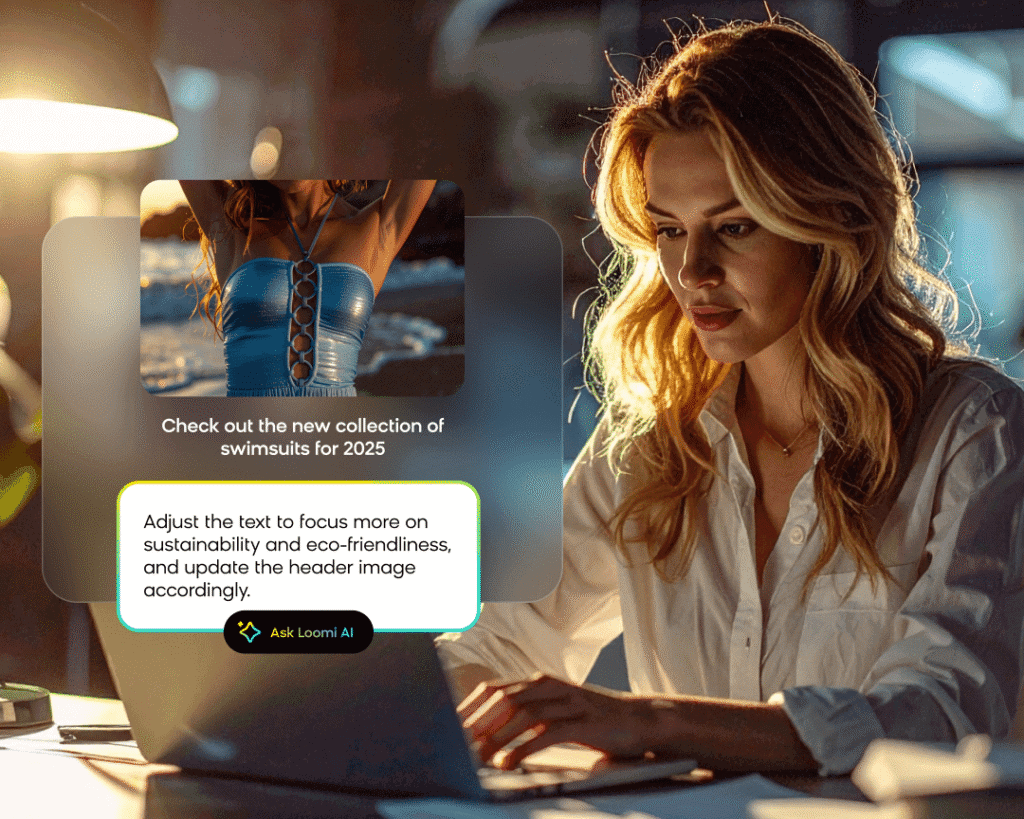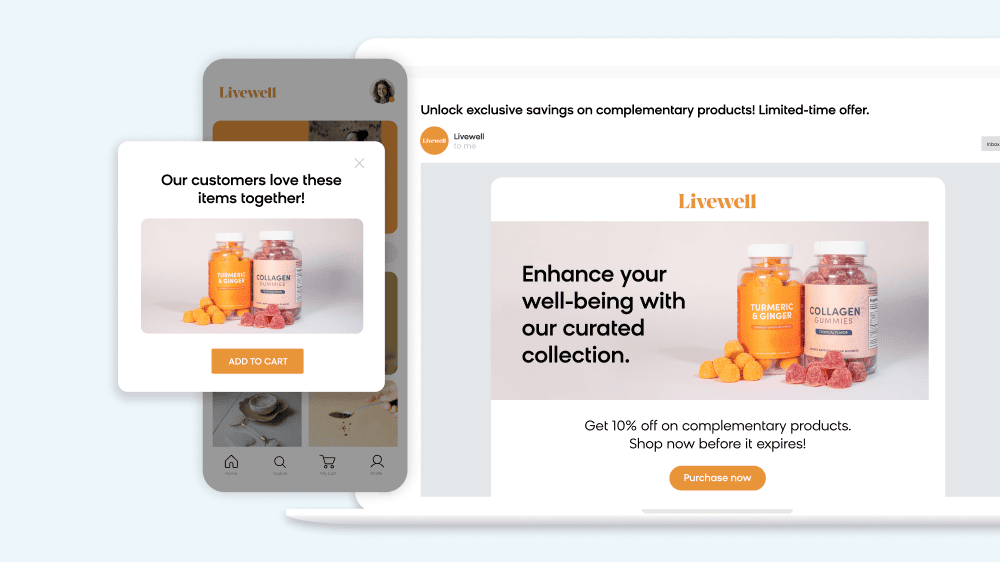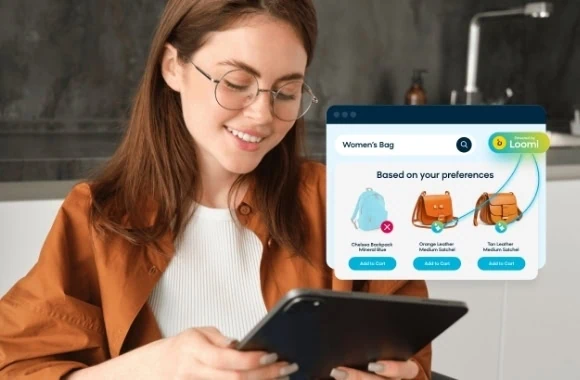Disclaimer: This blog post is intended for educational and informational purposes only and should not be construed as legal advice. The content is general in nature and may not reflect the most current legal developments. Bloomreach strongly recommends that you consult with your legal counsel to determine how the Washington email subject line ruling (Brown v. Old Navy, LLC) and other applicable laws apply to your business.
Email marketers, beware — you’ll need to be more careful with how you write your email subject lines moving forward. The Washington Supreme Court recently ruled (in Brown v. Old Navy, LLC) that any false or misleading information in email subject lines violates the Commercial Electronic Mail Act (CEMA).
Similar to the Texas SB 140 ruling for SMS/MMS, this ruling increases your brand’s compliance risk (and your risk for steep fines) if you send any promotional emails to Washington residents. Let’s go through the ruling in more detail, as well as how you can stay compliant.
Understanding Washington’s Email Subject Line Ruling
While similar state laws exist in California, Georgia, Maryland, and more, the Washington Supreme Court’s interpretation sets one of the broadest standards for email marketing.
Now, any email that reaches Washington residents with false or misleading information can be subject to a $500 penalty per email (or actual damages, whichever is greater), per recipient — with no proof of damage required.
Here are some examples of potentially misleading email subject lines:
- “Today only” (if the promo lasts longer than a day)
- Claims that a promotion has been “extended” when it hasn’t
- Offers that appear “new” but aren’t
- Announcements that the promotion has “ended” when it’s ongoing
- “Ends tonight” when the sale actually continues into the next day.

The Court did carve out an exception for “mere puffery” — subjective or hyperbolic statements (e.g., “biggest sale of the year”) that are more opinions than verifiable facts.
The Court emphasized that even under its broad interpretation, use of “mere puffery” or hyperbole in a subject line is not actionable under CEMA. Phrases like “Best Deals of the Year” are not misrepresentations and do not become retroactively false if a later sale is better, because such claims are subjective and unverifiable. Only false or misleading objective statements constitute a CEMA violation.
Who’s Impacted by the Email Subject Line Ruling
Basically, every business that emails Washington residents needs to follow this ruling. It doesn’t matter where your company is located — if any email lands in a Washington inbox, it’s subject to CEMA.
This will have a particular impact on retailers, ecommerce brands, DTC brands, subscription companies, and loyalty programs — anything that relies on urgency and availability messaging (e.g., “ends tonight” or “today only”) to promote or sell their products or services.
And if you’re a large-volume sender, you’ll have to be extra careful, since penalties are per email and per recipient, which means fines can quickly rack up if you’re found to be non-compliant.
The impact also extends to legal and compliance teams, as they’ll need to include subject line wording in their oversight.
Why This Matters for You
This ruling opens your business up to massive risk, especially if you send to a lot of people. With a penalty of $500 per email, per recipient, even a small error in the subject line can result in trillions of dollars in potential liability.
What’s more, class action suits may now focus on subject lines alone. This means compliance is more critical than ever. It’s no longer enough to simply pay attention to federal regulations (like CAN-SPAM) — you also need to consider CEMA and other state laws when creating your marketing campaigns.
What Marketers and Retailers Can Do To Stay Compliant
The Washington ruling may add more risk, but this is easily avoided if you implement the right processes. Here’s what you need to do:
- Review and audit subject lines. Double-check all email subject lines for factual accuracy, and make sure you avoid exaggerations that look like facts.
- Avoid misleading timing. Don’t say “today only” or “ends tonight” unless it’s 100% true.
- Be careful with how you use puffery. Only use puffery (“biggest ever!”) when it’s clearly an opinion and not a verifiable claim.
- Geo-segment Washington recipients. Apply stricter filters for subscribers in Washington state to ensure you add an extra step of scrutiny.
- Collaborate with legal and compliance teams. Get a legal review of every promotional claim before launch.
- Implement monitoring tools. Use automated systems to flag risky language before you send.
- Train your teams. Educate your marketing staff on new CEMA risks so subject lines are always crafted with compliance in mind.

For Bloomreach Engagement customers, the platform has features to help you stay compliant, including approvals, scenario workflows, and geo-segmentation. However, keep in mind that liability falls on the sender, not the platform, so you’ll also want to implement the above processes to avoid drawing significant penalties.
Keep Your Email Marketing Compliant
The Washington ruling makes it clear that email subject lines are no longer “just marketing copy” — they’re legal minefields.
In light of the stricter liability and heavy penalties that come with the ruling, your brand needs to double down on accuracy, which means it’s more important than ever to build cross-team compliance checks into every campaign.
Learn more about how you can build compliant email campaigns (and build them more effectively in Bloomreach Engagement) in our upcoming best practices webinar — register today!
Official Sources
• Brown v. Old Navy, LLC (Wash. Sup. Ct. Apr 17, 2025): Majority/Dissent & docket No. 102592-1. Washington Courts
• RCW 19.190.020(1)(b) – Unpermitted or misleading email; subject-line rule. Legislative Information Center
• RCW 19.190.040 – Damages ($500 per message or actual damages). Legislative Information Center













